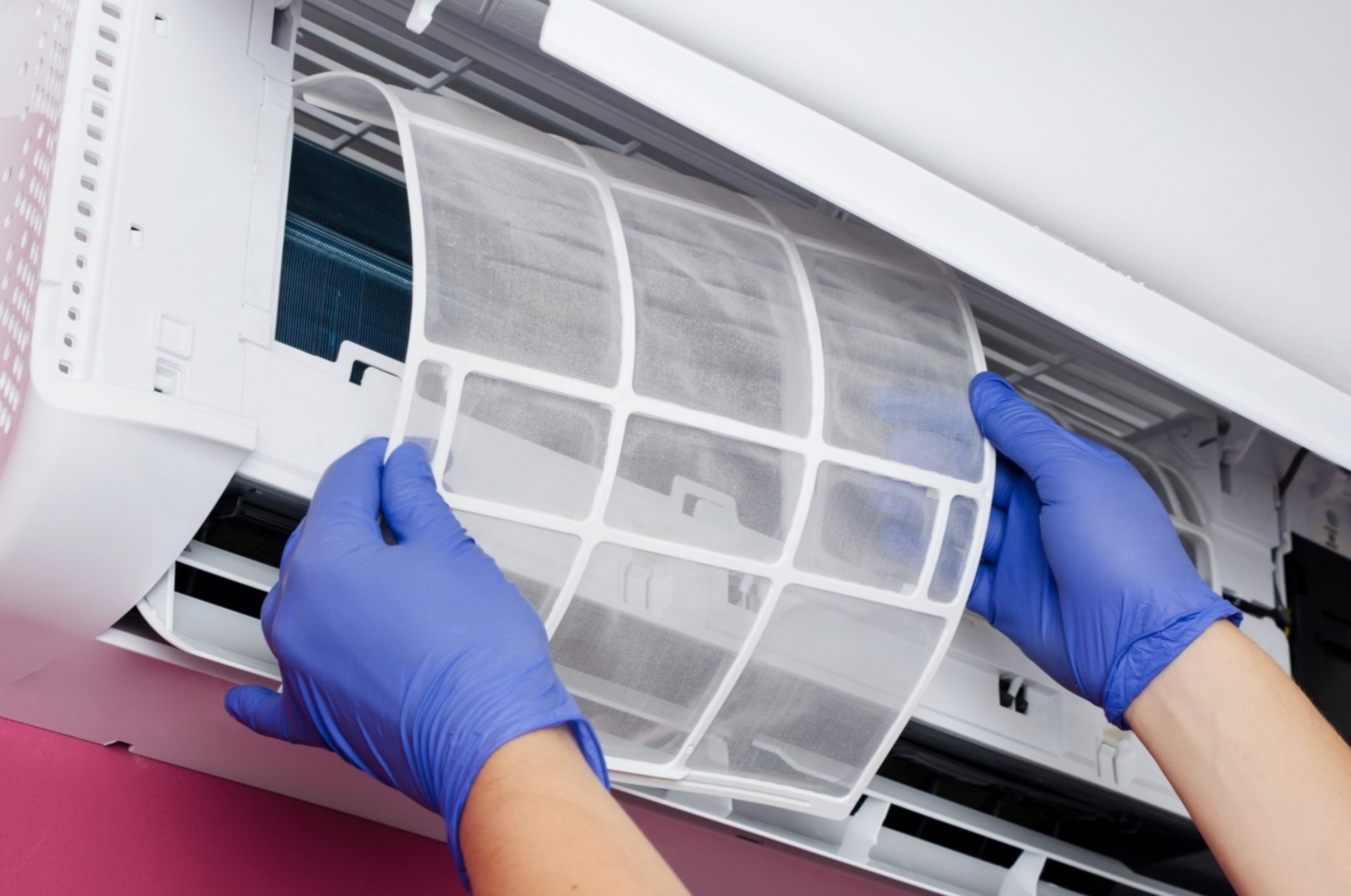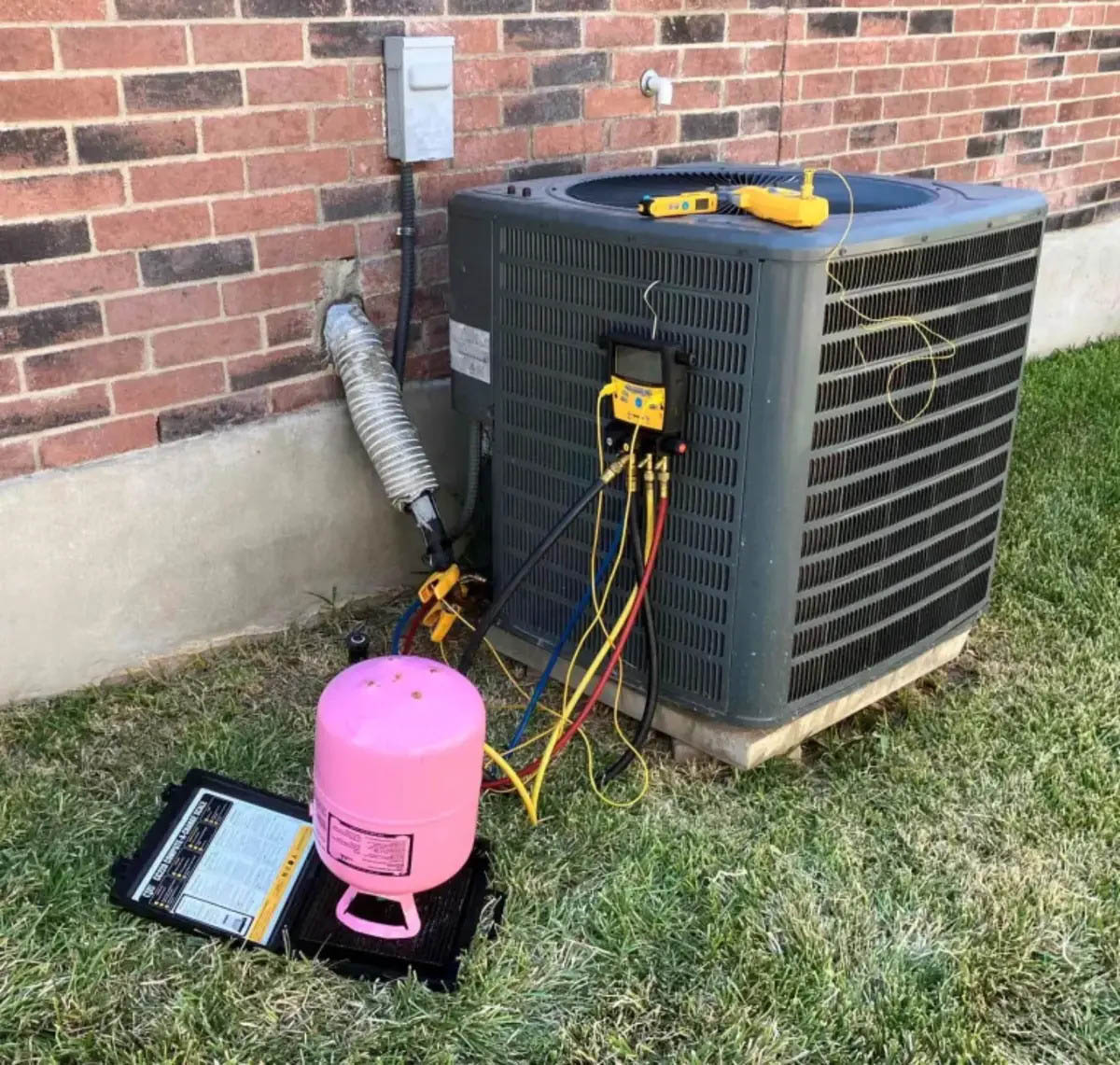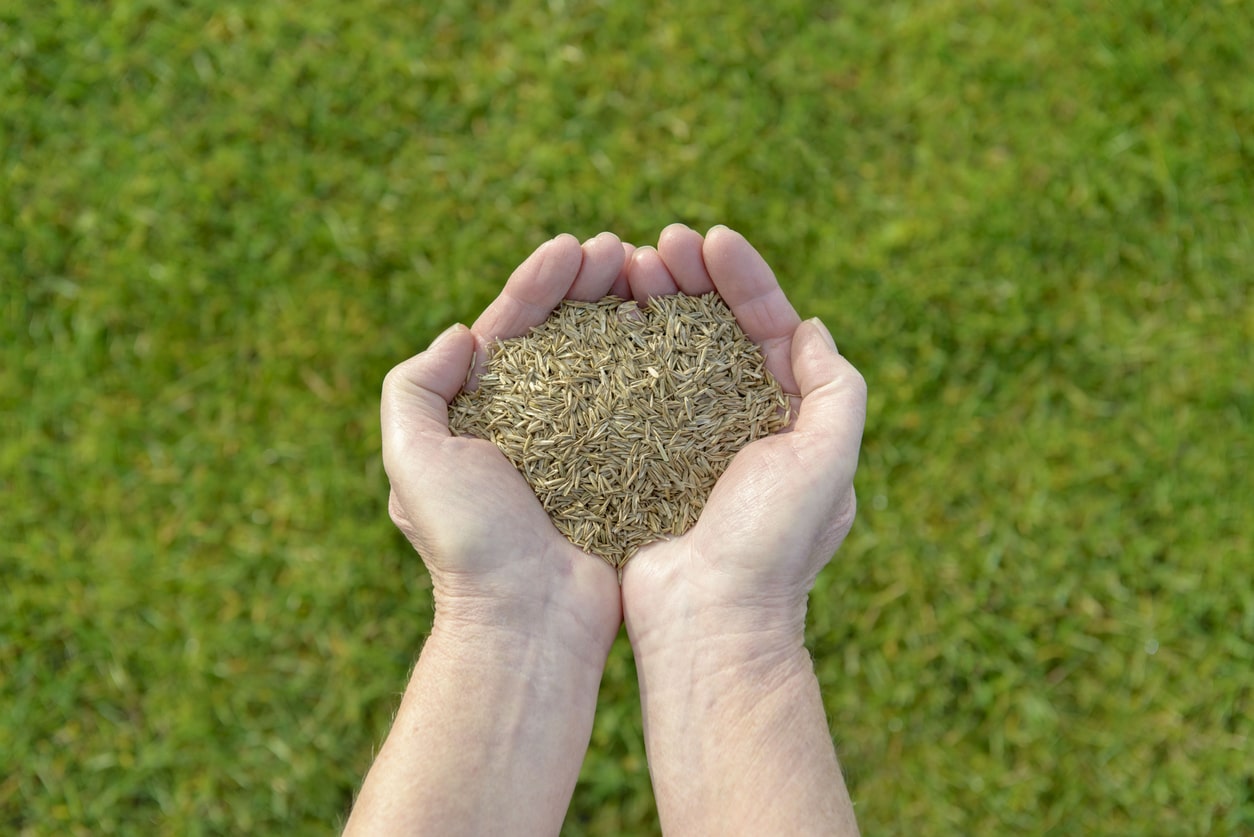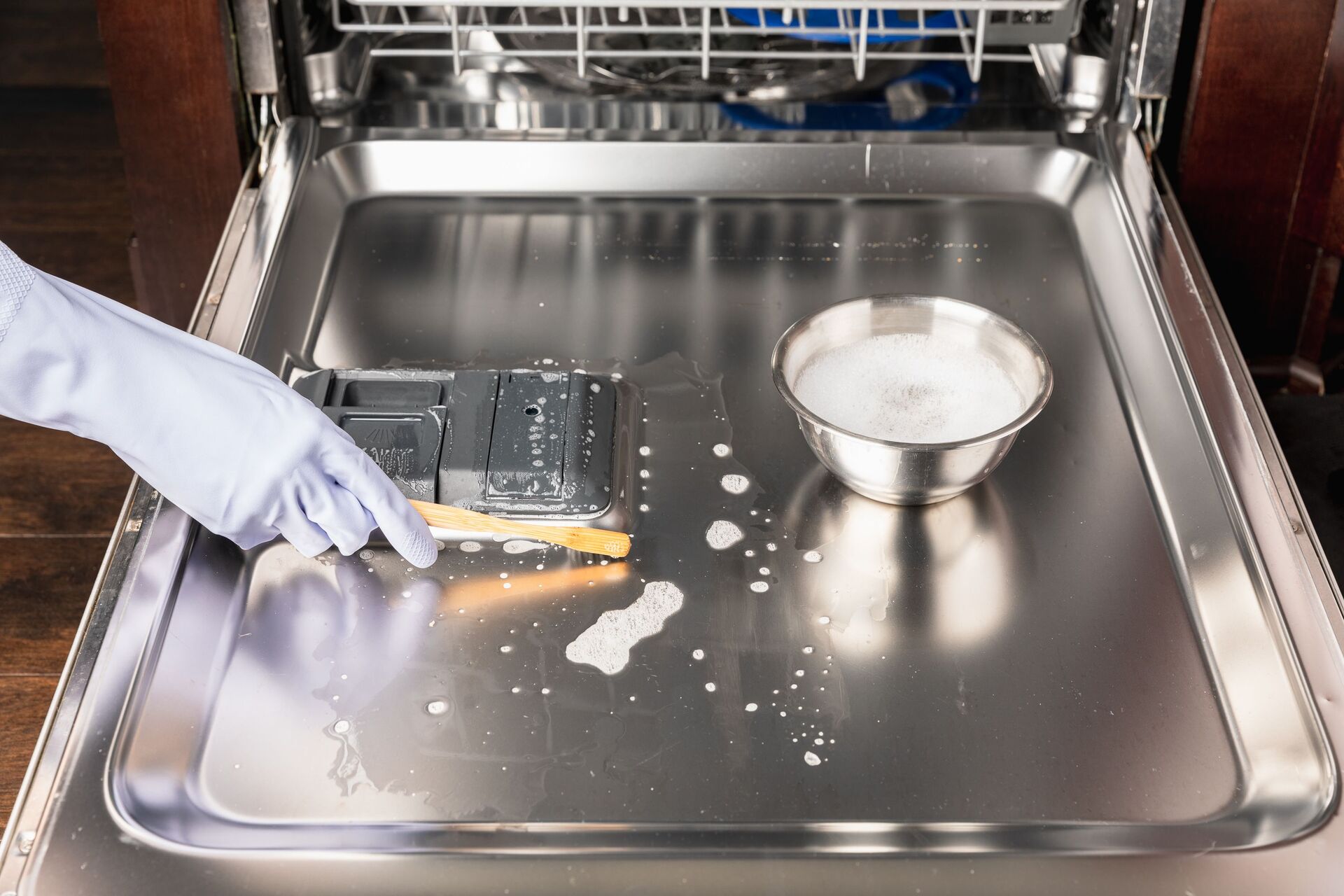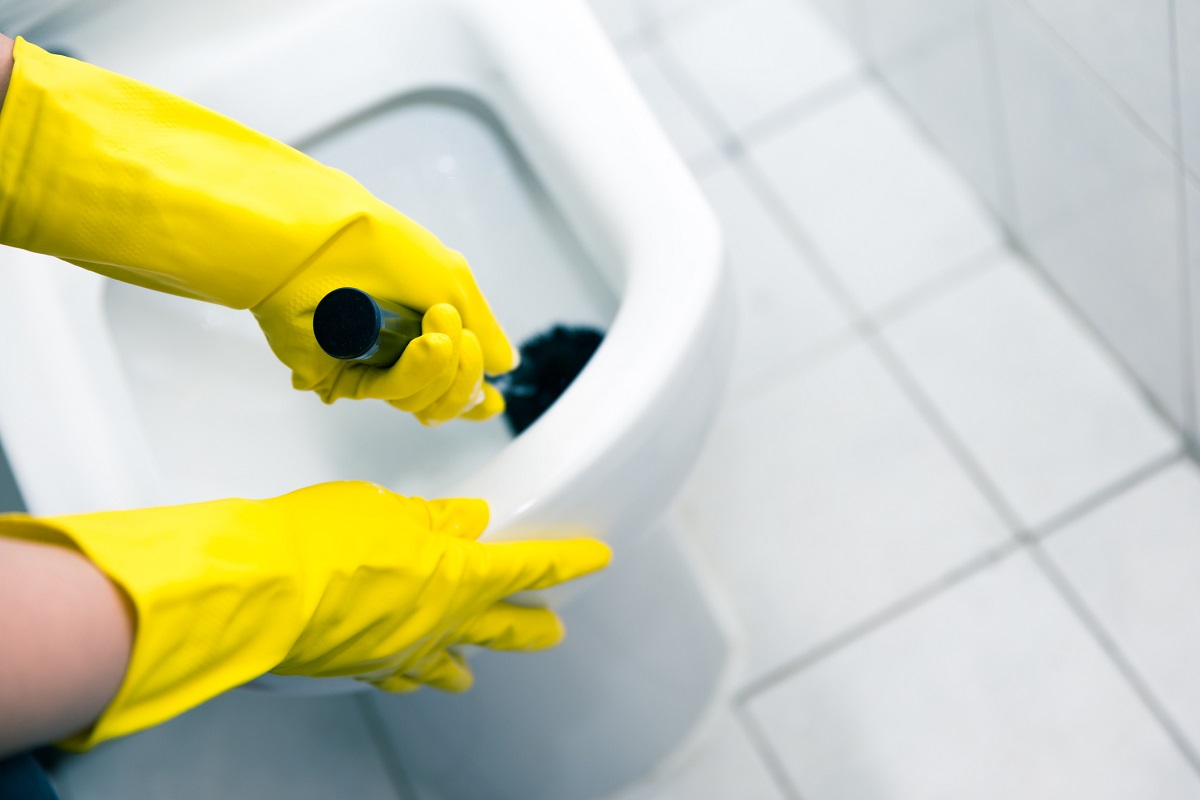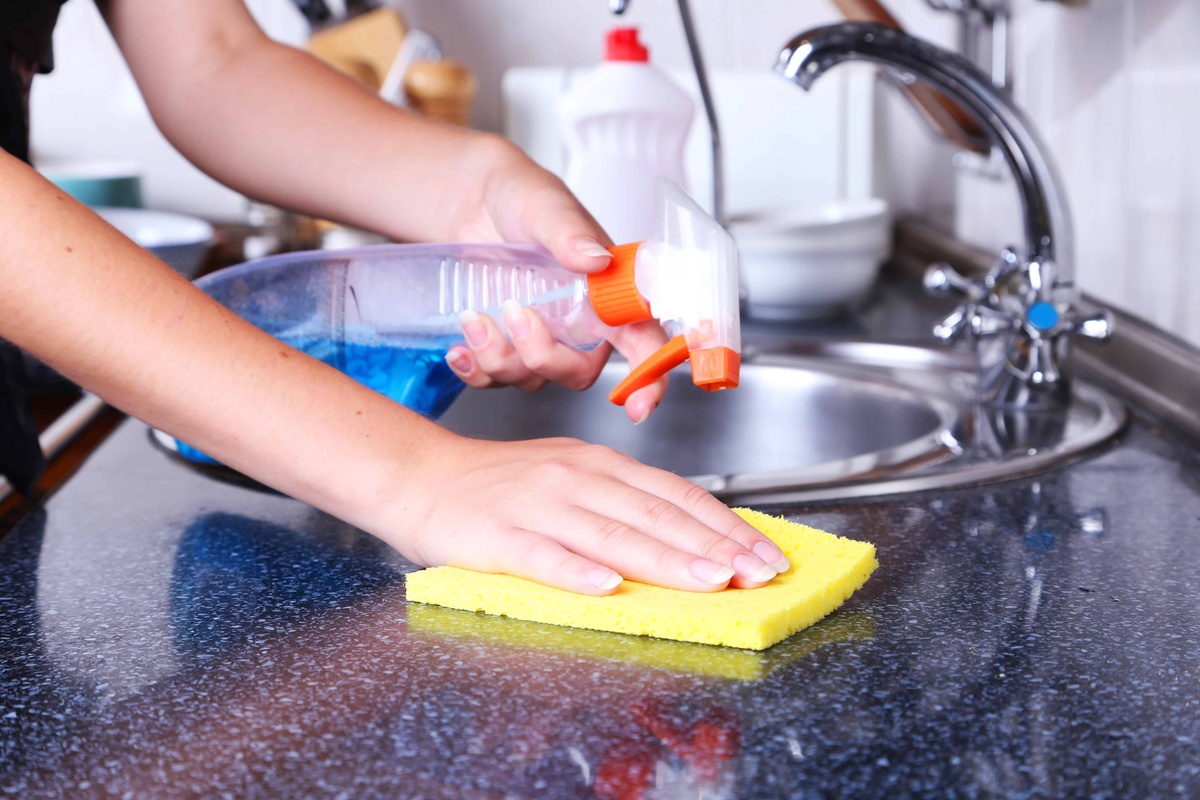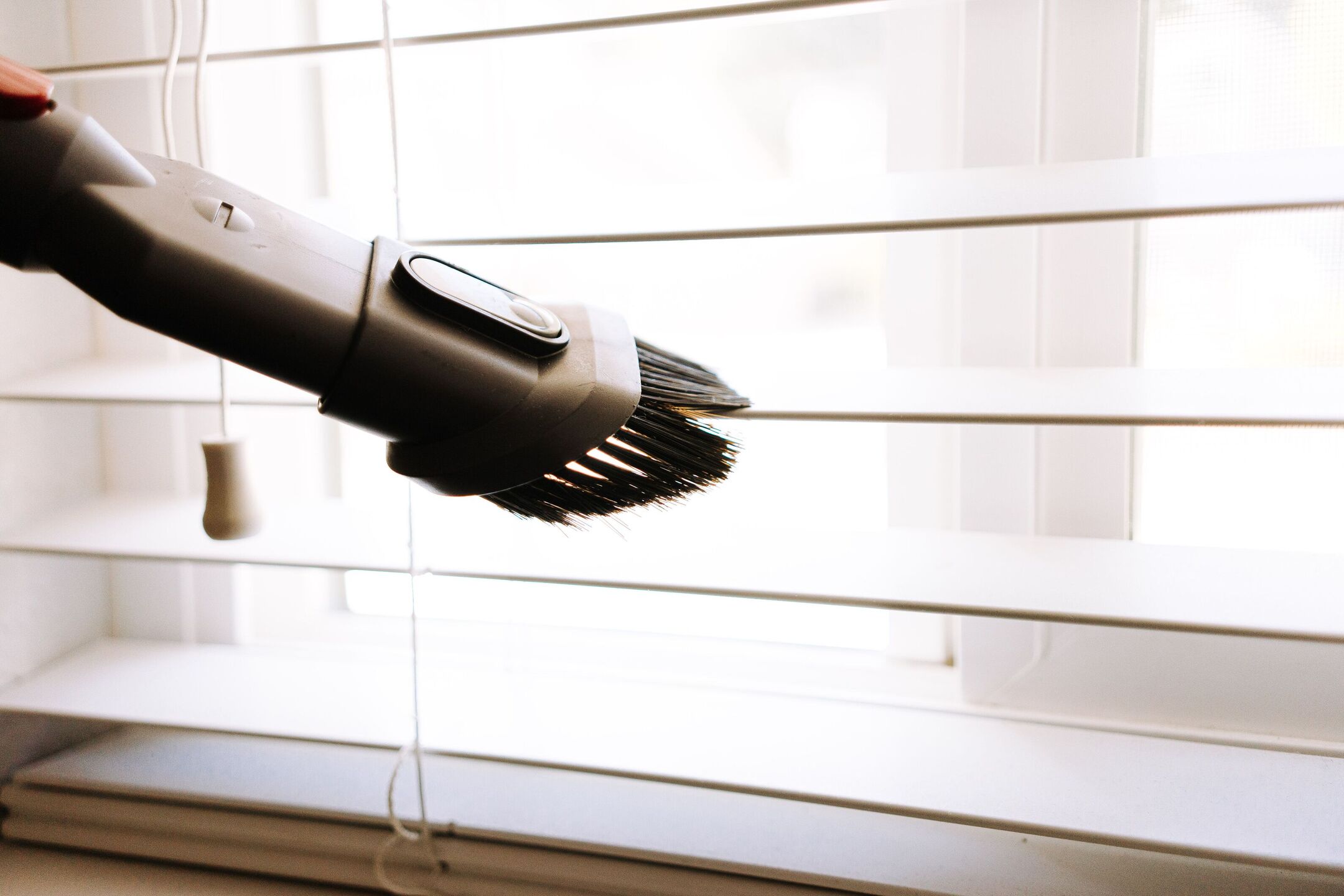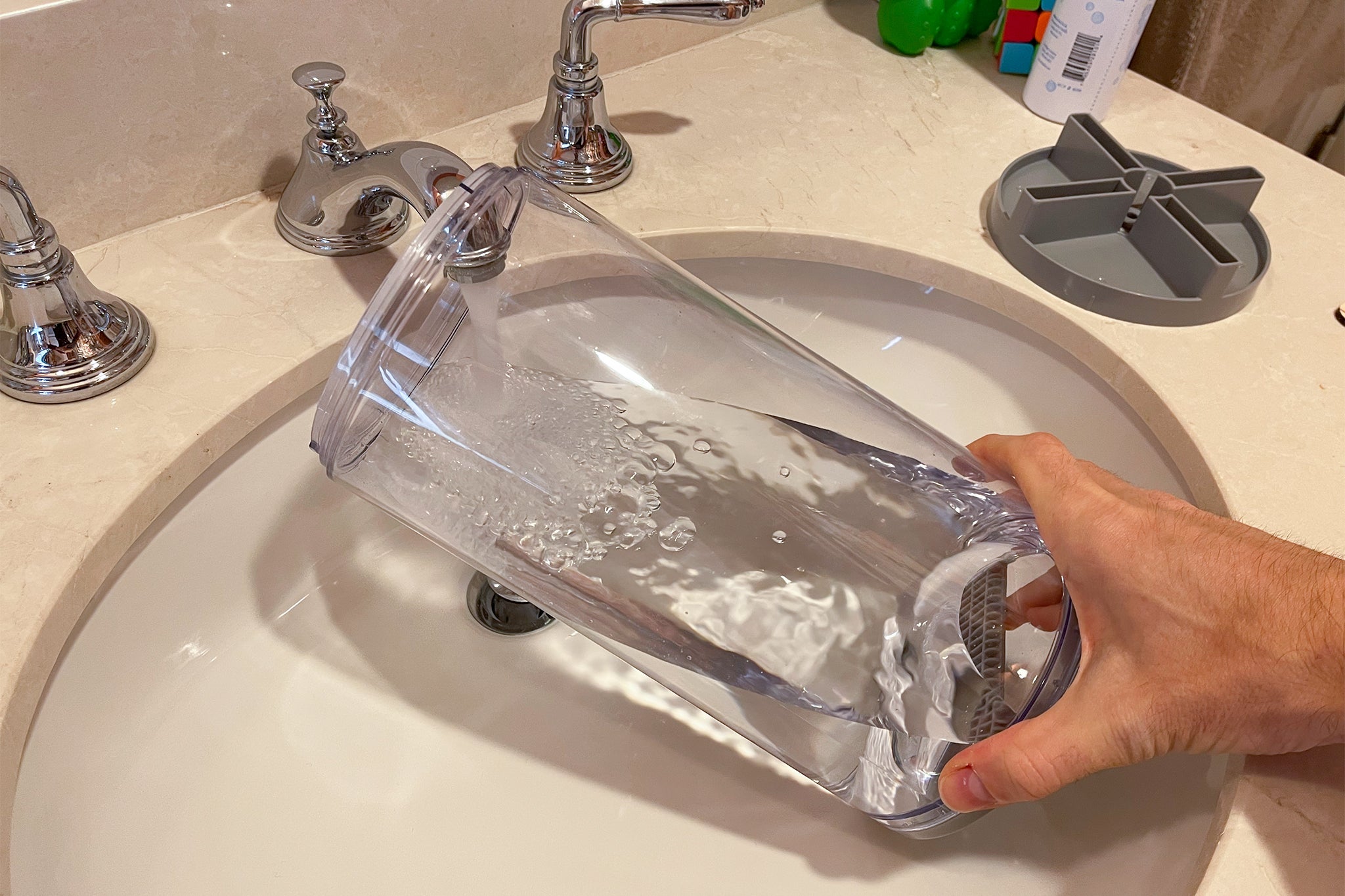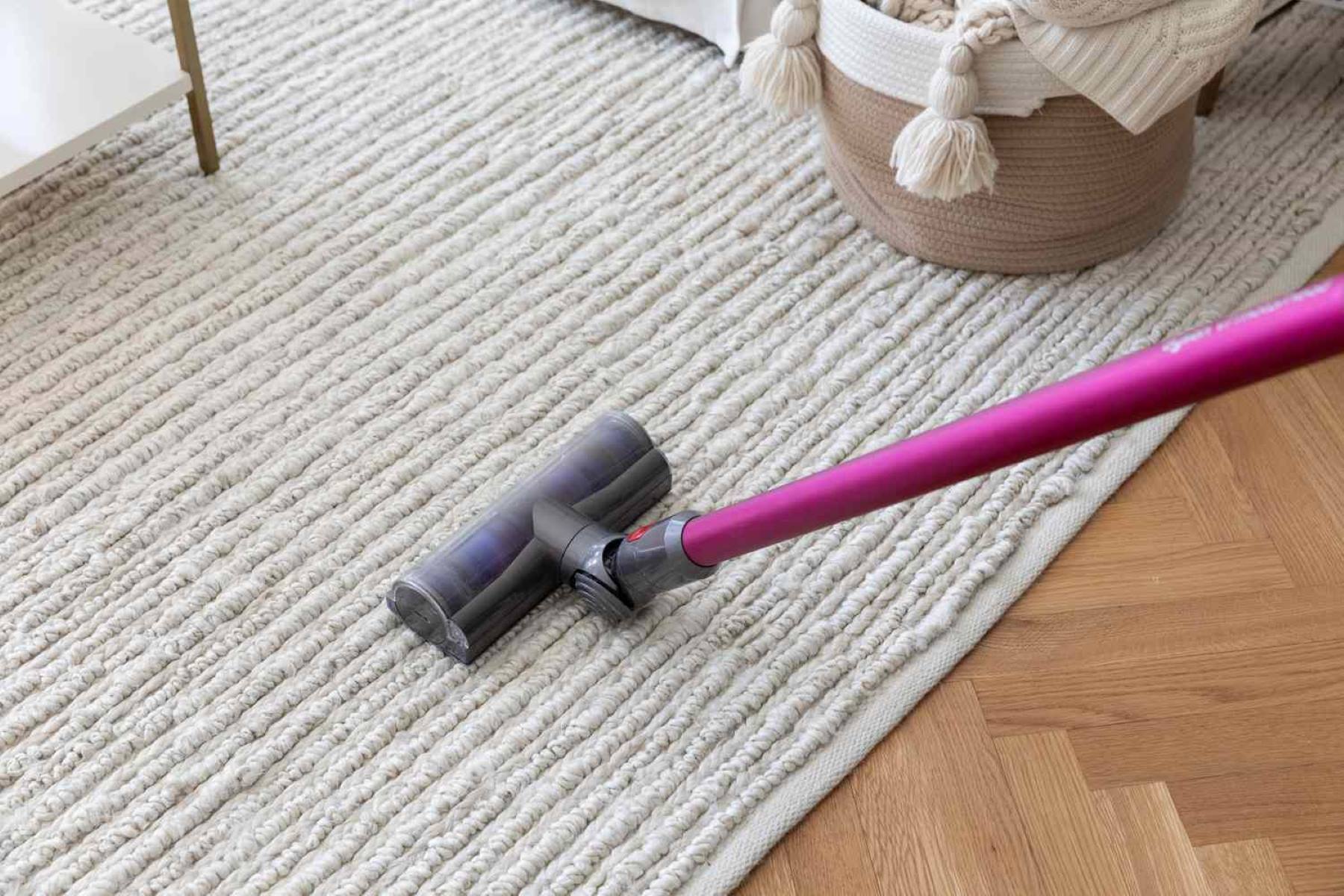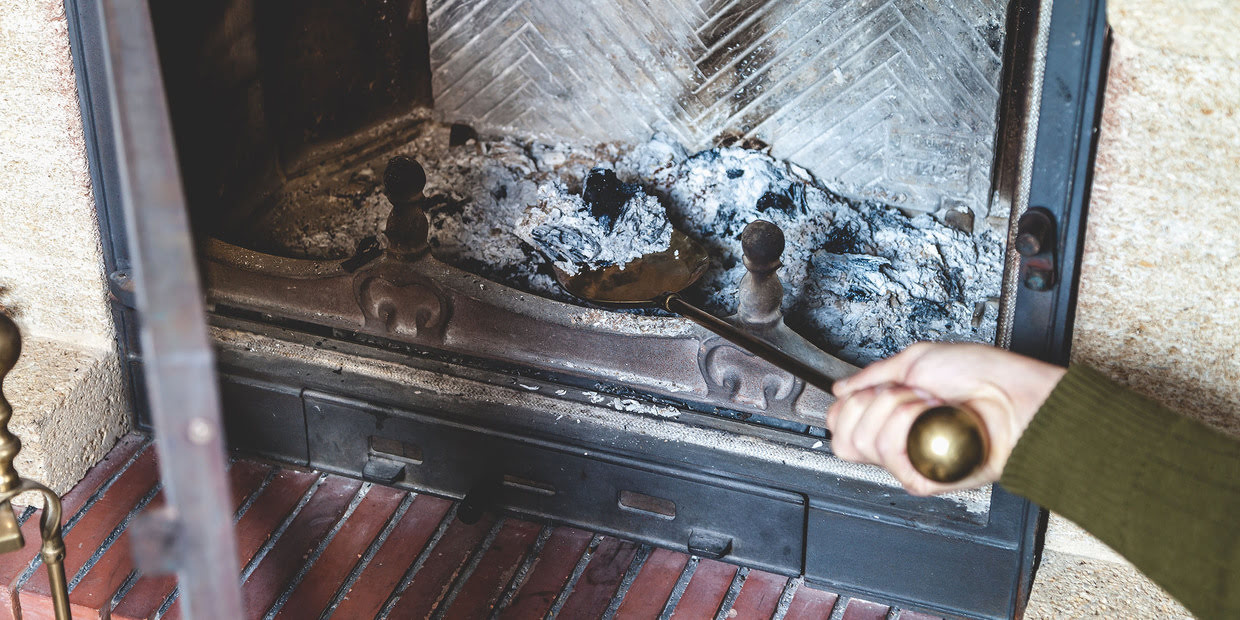Home>Home Maintenance>How Often Should I Clean An Air Conditioner
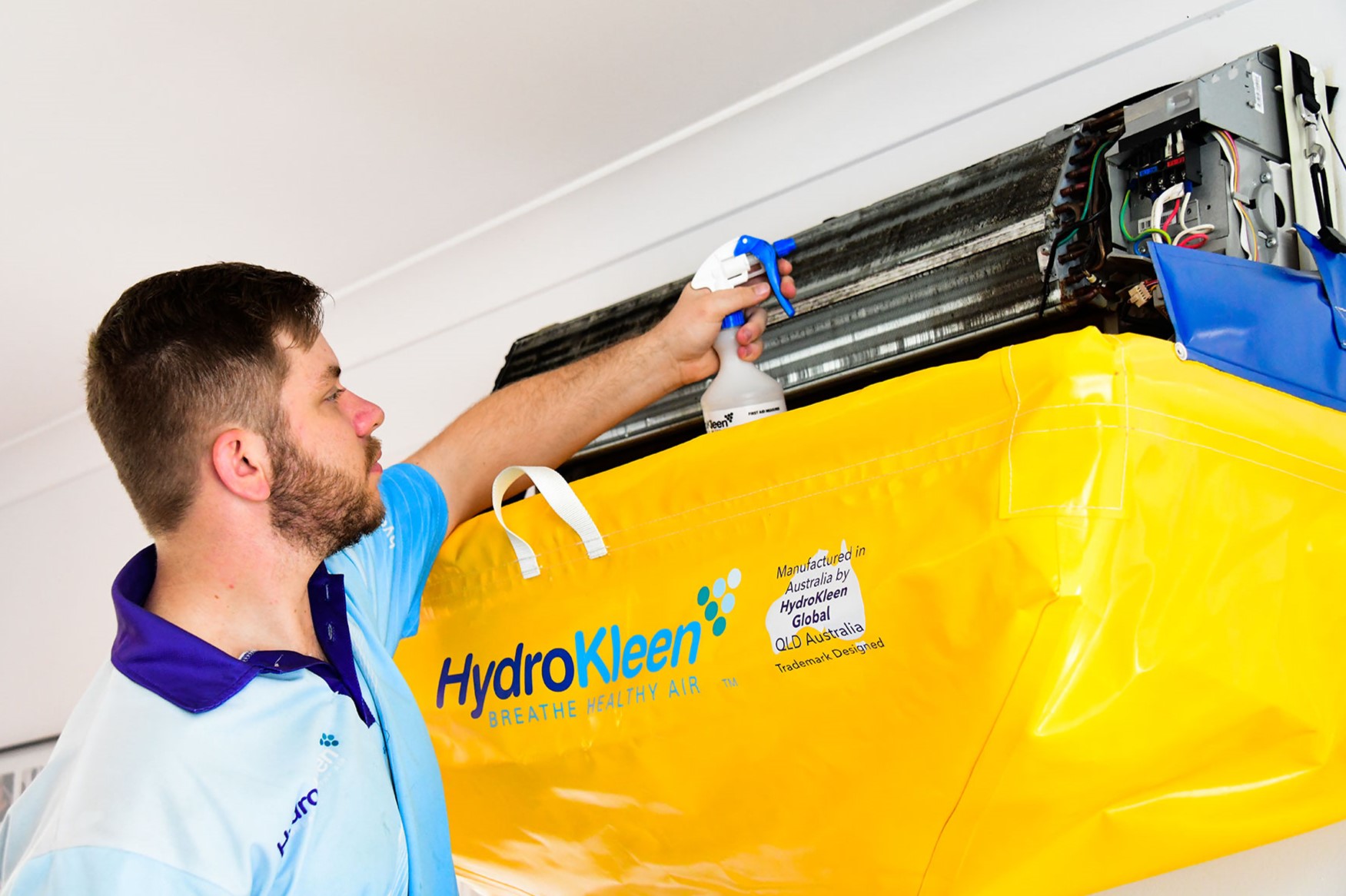

Home Maintenance
How Often Should I Clean An Air Conditioner
Modified: March 7, 2024
Regular home maintenance includes cleaning your air conditioner. Find out how often you should clean your AC unit for optimal performance and efficiency.
(Many of the links in this article redirect to a specific reviewed product. Your purchase of these products through affiliate links helps to generate commission for Storables.com, at no extra cost. Learn more)
Introduction
Welcome to our comprehensive guide on how often you should clean your air conditioner. Your air conditioner plays a crucial role in keeping your home cool and comfortable, especially during the summer months. However, like any other household appliance, it requires regular maintenance to ensure optimal performance and longevity.
Regularly cleaning your air conditioner is essential for several reasons. Not only does it help improve the air quality in your home, but it also enhances the efficiency of your unit, reducing energy consumption and ultimately saving you money on your utility bills. Cleaning your air conditioner also helps prevent potential issues such as clogged filters, reduced airflow, and even system breakdowns.
Before we dive into the frequency recommendations for cleaning your air conditioner, there are a few factors to consider. The frequency of cleaning will depend on various factors, including the climate you live in, the usage of your air conditioner, and the surrounding environment.
For individuals living in hot and humid climates, where the air conditioner is used extensively, more frequent cleaning may be necessary. The same applies if your home is located in an area with high levels of pollen, dust, or other air contaminants. On the other hand, if you only use your air conditioner occasionally or live in a cleaner environment, less frequent cleaning may be sufficient.
Now let’s explore some general recommendations for how often you should clean your air conditioner. It’s important to note that these are general guidelines, and it’s always best to refer to your specific unit’s manufacturer instructions for the most accurate information.
Key Takeaways:
- Regularly cleaning your air conditioner is crucial for maintaining its performance, energy efficiency, and longevity. It helps improve air quality, reduce energy consumption, and prevent potential breakdowns, ensuring a healthier and more comfortable living environment.
- Factors such as climate, usage, and surrounding environment influence how often you should clean your air conditioner. By understanding these factors and following recommended cleaning frequencies, you can ensure optimal performance and efficiency for your unit.
Importance of Regular Cleaning
Regularly cleaning your air conditioner is crucial for maintaining its performance and ensuring clean and healthy air quality in your home. Here are some key reasons why regular cleaning is important:
- Improved Air Quality: Air conditioners can accumulate dust, dirt, and other airborne particles over time. When these contaminants build up in your system, they can be circulated back into your home, leading to poor indoor air quality. Regular cleaning helps remove these particles and allergens, ensuring that the air you breathe is clean and fresh.
- Enhanced Energy Efficiency: A dirty air conditioner can experience reduced airflow, making it work harder to cool your home. This results in increased energy consumption and higher utility bills. By cleaning your air conditioner regularly, you can ensure proper airflow and maximize energy efficiency, saving you money in the long run.
- Prevention of Breakdowns: Neglecting air conditioner maintenance can lead to various issues, such as clogged filters, blocked coils, and malfunctioning components. These issues not only decrease the efficiency of your unit but can also cause system breakdowns and costly repairs. Regular cleaning helps prevent these problems and extends the lifespan of your air conditioner.
- Optimized Cooling Performance: Over time, dust and dirt can accumulate on the evaporator coils and other vital components of your air conditioner. This build-up hampers the system’s ability to cool effectively and can result in uneven temperatures throughout your home. By cleaning these components regularly, you can ensure optimal cooling performance and a consistent comfortable environment.
- Reduction of Allergens: Air conditioners help filter allergens and airborne particles from the air, making them especially beneficial for individuals with allergies or respiratory conditions. However, without regular cleaning, these allergens can accumulate in your unit, diminishing its effectiveness. By cleaning your air conditioner regularly, you can minimize allergens and create a healthier living environment.
By understanding the importance of regular cleaning, you can prioritize the maintenance of your air conditioner and reap the numerous benefits it brings. Not only will regular cleaning improve air quality and energy efficiency, but it will also help prevent potential breakdowns and extend the lifespan of your unit.
Factors to Consider
When determining how often you should clean your air conditioner, there are several factors to take into consideration. These factors can help you determine the appropriate cleaning frequency based on your specific circumstances:
- Climate: The climate in which you live plays a significant role in how often you should clean your air conditioner. If you reside in a hot and humid climate, your air conditioner is likely to run for longer periods to keep your home cool. This increased usage means more frequent cleaning may be necessary to ensure optimal performance.
- Usage: Consider how frequently you use your air conditioner. If you rely on it daily, especially during the summer months, it will accumulate dust and debris more quickly. In this case, regular cleaning is essential to maintain efficient operation.
- Surrounding Environment: Take note of the surrounding environment in which your air conditioner operates. If your home is located in an area with high pollen counts, dust, or other airborne contaminants, your system may require more frequent cleaning to prevent clogging and maintain proper airflow.
- Indoor Air Quality: If you or your family members suffer from allergies or respiratory conditions, it is crucial to prioritize the cleanliness of your air conditioner. Regular cleaning helps remove allergens and improves indoor air quality, creating a healthier environment for everyone in your home.
- Manufacturer’s Recommendations: Always refer to the manufacturer’s guidelines for your specific air conditioner model. They will provide detailed instructions on cleaning frequency and procedures that are tailored to your unit.
By considering these factors, you can determine the appropriate cleaning frequency for your air conditioner. Keep in mind that regular cleaning not only ensures optimal performance but also contributes to improved air quality and energy efficiency.
Frequency Recommendations
While the specific cleaning frequency for your air conditioner will depend on factors such as climate and usage, here are some general recommendations to help guide you:
- Filters: Air conditioner filters should ideally be cleaned or replaced every 1 to 2 months. However, in households with pets, smokers, or individuals with allergies, more frequent cleaning may be necessary. Check your filters regularly and clean or replace them as needed to ensure optimal airflow and air quality.
- Coils and Fins: The evaporator coils and condenser coils of your air conditioner collect dust and debris over time, reducing their efficiency. It is recommended to clean them at least once a year, preferably before the cooling season begins. This can be done using a soft brush or a vacuum cleaner with a brush attachment.
- Condensate Drain Line: The condensate drain line removes excess moisture from your air conditioner. Over time, it can become clogged with algae, mold, and debris. It is advisable to check the drain line and clean it every 3 to 6 months to prevent blockages and potential water damage.
- Ductwork: The ductwork of your air conditioning system should be inspected and cleaned by a professional every 2 to 5 years. This will help remove accumulated dust, dirt, and allergens, ensuring proper airflow and preventing potential health issues.
- Outdoor Unit: The outdoor unit of your air conditioner, including the compressor and fan, should be visually inspected regularly. Remove any visible debris, such as leaves or grass clippings, and ensure there is no blockage to the airflow. This can be done whenever necessary, especially after storms or periods of heavy debris accumulation.
Remember that these are general recommendations, and it is always best to consult your air conditioner’s manufacturer guidelines for specific cleaning instructions. Additionally, if you are unsure or uncomfortable performing the cleaning tasks yourself, it is recommended to seek professional assistance.
By following these frequency recommendations and maintaining a regular cleaning routine, you can ensure the optimal performance, energy efficiency, and longevity of your air conditioner.
Signs That Your Air Conditioner Needs Cleaning
Regular cleaning is crucial to keep your air conditioner running smoothly and efficiently. However, it can be challenging to determine exactly when your unit needs cleaning. Here are some telltale signs that indicate your air conditioner may be due for a cleaning:
- Reduced Airflow: If you notice a decrease in the airflow from your air conditioner, it may be a sign that the air filters or coils are dirty and obstructing proper airflow. Cleaning or replacing the filters and cleaning the coils can help restore optimal airflow.
- Increased Energy Consumption: If you notice a sudden increase in your energy bills without any apparent changes in usage, it may be due to an inefficient air conditioner caused by dirty components. Cleaning the coils, filters, and other key parts can improve energy efficiency and reduce your utility costs.
- Strange Odors: Unpleasant odors emanating from your air conditioner could be a sign of accumulated dirt, mold, or bacteria. Cleaning the unit and replacing the filters can help eliminate these odors and improve the air quality in your home.
- Inconsistent Cooling: If you notice that certain areas of your home are not cooling as effectively as others, it may indicate dirty coils or blocked vents. Cleaning these components can help ensure consistent and even cooling throughout your home.
- Noise: Unusual sounds coming from your air conditioner, such as rattling or clanking noises, can signal the presence of dirt or debris within the unit. Cleaning the components can help eliminate these noises and prevent potential damage to the system.
- Visible Dust and Debris: If you can see visible dust, dirt, or debris on the air conditioner’s filters, vents, or coils, it is a clear indication that cleaning is necessary. Regularly inspect these components and clean them when you notice a buildup of dirt.
Keep in mind that these signs may vary depending on the specific model and condition of your air conditioner. It is always a good idea to refer to the manufacturer’s guidelines and consult with a professional if you are unsure about the cleaning requirements of your unit.
By paying attention to these signs and addressing any cleaning needs promptly, you can ensure that your air conditioner operates efficiently, provides optimal cooling comfort, and maintains a clean and healthy indoor environment.
It is recommended to clean your air conditioner at least once a month during heavy use, and every 2-3 months during lighter use. This helps maintain its efficiency and prevents buildup of dust and debris.
Read more: How Often Should I Clean Toilet Bowl
How to Clean an Air Conditioner
Cleaning your air conditioner is a crucial maintenance task that helps ensure optimal performance and efficiency. While specific cleaning procedures may vary depending on your unit’s make and model, here are some general steps to follow when cleaning your air conditioner:
- Turn Off the Power: Before beginning any cleaning procedures, ensure that the power to your air conditioner is turned off. This can usually be done by switching off the circuit breaker that controls the unit.
- Clean or Replace the Air Filters: Remove the air filters from your air conditioner and inspect them for dust and debris. If they are reusable, clean them according to the manufacturer’s instructions. If they are disposable, replace them with new filters.
- Clean the Coils: The evaporator coils and condenser coils can accumulate dirt and dust over time, reducing their efficiency. Use a soft brush or a vacuum cleaner with a brush attachment to gently remove the dirt from the coils. Avoid using excessive force to prevent damage to the delicate fins.
- Clean the Condensate Drain Line: Locate the condensate drain line, which removes excess moisture from your air conditioner. Use a mixture of warm water and mild detergent to flush out any algae, mold, or debris that may be clogging the drain line.
- Clean the Outdoor Unit: Inspect the outdoor unit, including the compressor and fan, for any visible debris such as leaves or grass clippings. Carefully remove the debris using a soft brush or by gently rinsing the unit with a hose. Avoid using excessive water pressure to prevent damage to the unit.
- Inspect and Clean the Vents and Registers: Examine the vents and registers in your home and ensure they are free from dust and obstruction. Use a vacuum cleaner or a damp cloth to remove any accumulated dirt and ensure proper airflow.
- Turn On the Power: After completing the cleaning process, turn on the power to your air conditioner and allow it to run for a few minutes to ensure that everything is working correctly.
It’s important to note that these are general cleaning guidelines, and you should always consult your air conditioner’s manufacturer instructions for specific cleaning procedures and safety precautions. If you are unsure about any aspect of cleaning your air conditioner, it is best to seek professional assistance.
By following these steps and incorporating regular cleaning into your maintenance routine, you can keep your air conditioner running smoothly and efficiently, providing optimal cooling comfort and cleaner air in your home.
Professional Cleaning vs. DIY Cleaning
When it comes to cleaning your air conditioner, you have the option of either performing the task yourself or hiring a professional service. Both approaches have their advantages and considerations. Let’s explore the differences between professional cleaning and DIY cleaning:
Professional Cleaning:
Hiring a professional air conditioner cleaning service offers several benefits:
- Expertise: Professionals have the knowledge, experience, and specialized equipment to effectively clean your air conditioner. They are trained to identify and address specific issues, ensuring a thorough and comprehensive cleaning process.
- Time-Saving: Cleaning an air conditioner can be a time-consuming process, especially if you are unfamiliar with the equipment or lack the necessary tools. Hiring professionals can save you time and effort, allowing you to focus on other tasks.
- Thoroughness: Professionals have access to professional-grade cleaning agents and equipment, enabling them to thoroughly clean all components of your air conditioner, including hard-to-reach areas. They can also inspect and identify any potential issues or damage that may require further attention.
- Peace of Mind: By entrusting the cleaning to professionals, you can have peace of mind knowing that the job is done correctly and that your air conditioner is in optimal condition. This can also help prevent any accidental damage that could occur during DIY cleaning.
DIY Cleaning:
Performing a DIY cleaning of your air conditioner can also be a viable option under certain circumstances:
- Cost Savings: DIY cleaning eliminates the cost of hiring a professional service. If you have the necessary skills, knowledge, and tools, you can save money by handling the cleaning yourself.
- Regular Maintenance: Regular cleaning is essential for maintaining your air conditioner’s performance. Performing simple cleaning tasks, such as changing filters and removing visible debris, can be done on a regular basis to enhance efficiency and prevent major issues.
- Hands-On Experience: Cleaning your air conditioner yourself allows you to become familiar with its components, making it easier to identify and address any potential issues in the future. It can also give you a sense of accomplishment and satisfaction in taking care of your home.
Before deciding between professional cleaning and DIY cleaning, consider the complexity of the task, your comfort level with performing maintenance tasks, and the time and resources you have available. Additionally, always refer to the manufacturer’s guidelines for specific cleaning instructions to ensure you don’t void any warranties.
In some cases, a combination of both approaches may be beneficial. You can perform basic cleaning tasks regularly yourself and schedule professional cleanings periodically for a more intensive and comprehensive maintenance routine.
Ultimately, the choice between professional cleaning and DIY cleaning depends on your preferences, budget, and the specific needs of your air conditioner. Regardless of the approach you choose, regular cleaning is crucial for maintaining the efficiency and longevity of your air conditioner.
Conclusion
Regular cleaning of your air conditioner is essential for maintaining its performance, energy efficiency, and longevity. By following the recommended cleaning frequency and procedures, you can ensure that your air conditioner operates optimally while providing clean and healthy air in your home.
Understanding the factors that influence cleaning frequency, including the climate, usage, and surrounding environment, allows you to tailor your cleaning routine to suit your specific circumstances. It is crucial to refer to your air conditioner’s manufacturer guidelines for detailed instructions that are specific to your unit.
Recognizing the signs that your air conditioner needs cleaning, such as reduced airflow, increased energy consumption, or strange odors, enables you to take prompt action to maintain your unit’s efficiency and prevent potential issues.
Whether you choose professional cleaning or opt for a DIY approach, both have their advantages and considerations. Professional cleaning provides expertise, time savings, thoroughness, and peace of mind, while DIY cleaning offers cost savings, regular maintenance, and hands-on experience. It’s important to assess your skills, resources, and comfort level when deciding which approach to take.
In conclusion, by regularly cleaning your air conditioner, you can improve indoor air quality, enhance energy efficiency, prevent breakdowns, and extend the lifespan of your unit. Prioritize maintenance and consider the unique factors that apply to your situation to ensure that your air conditioner remains in optimal condition for years to come.
Remember, a clean air conditioner not only keeps your home cool but also contributes to a healthier and more comfortable living environment for you and your family.
Frequently Asked Questions about How Often Should I Clean An Air Conditioner
Was this page helpful?
At Storables.com, we guarantee accurate and reliable information. Our content, validated by Expert Board Contributors, is crafted following stringent Editorial Policies. We're committed to providing you with well-researched, expert-backed insights for all your informational needs.

